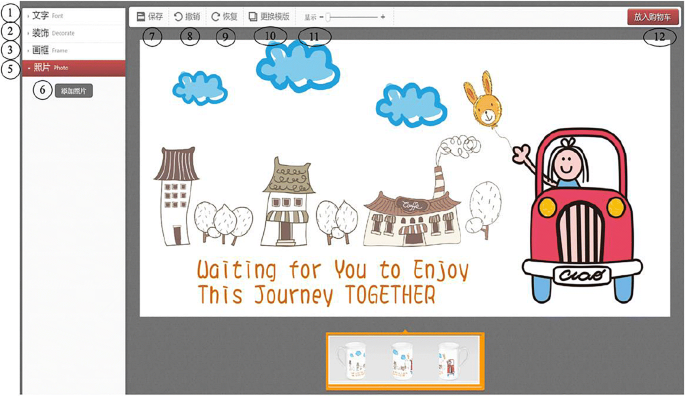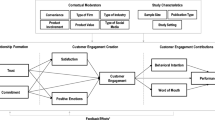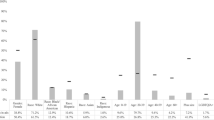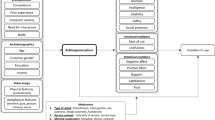Abstract
Customers of mass customization websites measure the utility of the site by the uniqueness of the products they design, yet the factors influencing customizer perceptions of product uniqueness are underexplored. We examine the effect of the intended recipient (self vs. close others) in three studies involving real customization tasks. We show that creators (i.e., product customizers) perceive products designed for close others (vs. for themselves) to be more unique, with thoughtfulness in design as the mediator. This recipient effect is not found when third parties evaluate product uniqueness, suggesting that recipient identity does not influence design outcomes but merely creator perceptions of those outcomes. In the design-for-others context wherein creators are usually gift givers, gift recipients perceive designed products to be more unique than do the gift givers (i.e., creators), and these perceptions enhance the recipient’s feelings of appreciation via the mediating effect of the perceived thoughtfulness of gift givers. We close by discussing the theoretical and practical implications of these findings.

Similar content being viewed by others
Notes
Given that people behave differently when giving gifts to close others versus to distant others (Belk 1976; Gino and Flynn 2011; Ward and Broniarczyk 2016) and often use mass customization to design gifts for close others (Moreau et al. 2011), this research focuses on the context of designing for close others.
References
Belk, R. W. (1976). It’s the thought that counts: a signed digraph analysis of gift-giving. Journal of Consumer Research, 3(3), 155–162. https://doi.org/10.1086/208662.
Belk, R. W. (1996). The perfect gift. In O. Cele & R. F. Beltramini (Eds.), Gift giving: a research anthology (pp. 59–84). Bowling Green: Bowling Green University Popular Press. https://doi.org/10.1086/209357.
Camerer, C. (1988). Gifts as economic signals and social symbols. The American Journal of Sociology, 94, 180–214. https://doi.org/10.1086/228946.
de Bellis, E., Hildebrand, C., Ito, K., & Herrmann, A. (2015). Cross-national differences in uncertainty avoidance predict the effectiveness of mass customization across east Asia: a large-scale field investigation. Marketing Letters, 26(3), 309–320. https://doi.org/10.1007/s11002-015-9356-z.
Eyal, T., Steffel, M., & Epley, N. (2018). Perspective mistaking: accurately understanding the mind of another requires getting perspective, not taking perspective. Journal of Personality and Social Psychology, 114(4), 547–571. https://doi.org/10.1037/pspa0000115.
Fiore, A. M., Lee, S. E., & Kunz, G. (2004). Individual differences, motivations, and willingness to use a mass customization option for fashion products. European Journal of Marketing, 38(7), 835–849. https://doi.org/10.1108/03090560410539276.
Flynn, F. J., & Adams, G. S. (2009). Money can’t buy love: asymmetric beliefs about gift price and feelings of appreciation. Journal of Experimental Social Psychology, 45(2), 404–409. https://doi.org/10.1016/j.jesp.2008.11.003.
Fogliatto, F. S., da Silveira, G. J. C., & Borenstein, D. (2012). The mass customization decade: an updated review of the literature. International Journal of Production Economics, 138(1), 14–25. https://doi.org/10.1016/j.ijpe.2012.03.002.
Franke, N., & Schreier, M. (2008). Product uniqueness as a driver of customer utility in mass customization. Marketing Letters, 19(2), 93–107. https://doi.org/10.1007/s11002-007-9029-7.
Franke, N., Keinz, P., & Steger, C. J. (2009). Testing the value of customization: when do customers really prefer products tailored to their preferences? Journal of Marketing, 73(5), 103–121. https://doi.org/10.1509/jmkg.73.5.103.
Franke, N., Schreier, M., & Kaiser, U. (2010). The “I designed it myself” effect in mass customization. Management Science, 56(1), 125–140. https://doi.org/10.1287/mnsc.1090.1077.
Gino, F., & Flynn, F. J. (2011). Give them what they want: the benefits of explicitness in gift exchange. Journal of Experimental Social Psychology, 47(5), 915–922. https://doi.org/10.1016/j.jesp.2011.03.015.
Goodman, J. K., & Lim, S. (2018). When consumers prefer to give material gifts instead of experiences: the role of social distance. Journal of Consumer Research, 45(2), 365–382. https://doi.org/10.1093/jcr/ucy010.
Jain, S. P., Desai, K. K., & Mao, H. (2007). The influence of chronic and situational self-construal on categorization. Journal of Consumer Research, 34(1), 66–76. https://doi.org/10.1086/513047.
Kaiser, U., Schreier, M., & Janiszewski, C. (2017). The self-expressive customization of a product can improve performance. Journal of Marketing Research, 54(5), 816–831. https://doi.org/10.1509/jmr.14.0293.
Ko, D., Seo, Y., & Jung, S. U. (2015). Examining the effect of cultural congruence, processing fluency, and uncertainty avoidance in online purchase decisions in the U.S. and Korea. Marketing Letters, 26(3), 377–390. https://doi.org/10.1007/s11002-015-9351-4.
Kruger, J., Wirtz, D., Van Boven, L., & Altermatt, T. W. (2004). The effort heuristic. Journal of Experimental Social Psychology, 40(1), 91–98. https://doi.org/10.1016/S0022-1031(03)00065-9.
Liu, P. J., Dallas, S. K., & Fitzsimons, G. J. (2019). A framework for understanding consumer choices for others. Journal of Consumer Research. https://doi.org/10.1093/jcr/ucz009.
Mathwick, C., Wagner, J., & Unni, R. (2010). Computer-mediated customization tendency (CMCT) and the adaptive E-service experience. Journal of Retailing, 86(1), 11–21. https://doi.org/10.1016/j.jretai.2009.11.001.
Moreau, C. P., Bonney, L., & Herd, K. B. (2011). It's the thought (and the effort) that counts: how customizing for others differs from customizing for oneself. Journal of Marketing, 75(5), 120–133. https://doi.org/10.1509/jmkg.75.5.120.
Preacher, K. J., & Hayes, A. F. (2004). SPSS and SAS Procedures for estimating indirect effects in simple mediation models. Behavior Research Methods, 36(4), 717–731. https://doi.org/10.3758/BF03206553.
Robben, H. S., & Verhallen, T. M. (1994). Behavioral costs as determinants of cost perception and preference formation for gifts to receive and gifts to give. Journal of Economic Psychology, 15(2), 333–350. https://doi.org/10.1016/0167-4870(94)90008-6.
Steffel, M., & Le Boeuf, R. A. (2014). Over-individuation in gift giving: shopping for multiple recipients leads givers to choose unique but less preferred gifts. Journal of Consumer Research, 40(6), 1167–1180. https://doi.org/10.1086/674199.
Tu, Y., Shaw, A., & Fishbach, A. (2016). The friendly taking effect: how interpersonal closeness leads to seemingly selfish yet jointly maximizing choice. Journal of Consumer Research, 42(5), 669–687. https://doi.org/10.1093/jcr/ucv052.
Waldfogel, J. (1993). The deadweight loss of Christmas. The American Economic Review, 83, 1328–1336. https://doi.org/10.1257/aer.90.1.319.
Ward, M. K., & Broniarczyk, S. M. (2016). Ask and you shall (not) receive: close friends prioritize relational signaling over recipient preferences in their gift choices. Journal of Marketing Research, 53(6), 1001–1018. https://doi.org/10.1509/jmr.13.0537.
Wooten, D. B. (2000). Qualitative steps toward an expanded model of anxiety in gift-giving. Journal of Consumer Research, 27(1), 84–95. https://doi.org/10.1086/314310.
Zhang, Y., & Epley, N. (2012). Exaggerated, mispredicted, and misplaced: when “it's the thought that counts” in gift exchanges. Journal of Experimental Psychology. General, 141(4), 667–681. https://doi.org/10.1037/a0029223.
Funding
This research is supported by the National Natural Science Foundation of China awarded to the third author (Grant No. 71472181) and the fourth author (Grant No. 71331007).
Author information
Authors and Affiliations
Corresponding author
Additional information
Publisher’s note
Springer Nature remains neutral with regard to jurisdictional claims in published maps and institutional affiliations.
Appendices
Appendix A Examples of the design interface of the mass customization platform used in Studies 1 and 3
-
Interface of designing coffee mugs in Study 1

-
Interface of designing mouse pads in Study 3

Appendix B Measurement items
Constructs | Items | Scales | Cronbach’s α |
Perceived product uniqueness | 1. How special is the designed product? | 1 = not at all 7 = very much | 0.89 (Study 1) 0.94 (Study 2) 0.93 (Study 3) |
2. How unique is the designed product? | |||
3. To what extent do you think the designed product is one of a kind? | |||
Consumer thoughtfulness in product design | 1. To what extent are you thoughtful in the design process? | 1 = not at all 7 = very much | 0.89 (Study 2) 0.92 (Study 3) |
2. To what extent do you put your careful thoughts in the design process? | |||
3. To what extent do you take your/your friend’s needs into account during the design process? | |||
Feelings of appreciation | 1. To what extent do you appreciate this gift? | 1 = not at all 7 = very much | 0.96 |
2. To what extent do you feel grateful for this gift? | |||
3. To what extent do you feel thankful for the gift? | |||
4. To what extent would you feel enjoy receiving this gift? | |||
5. To what extent would you feel pleased about receiving this gift? | |||
Relationship closeness | 1. We are very close friends | 1 = strongly disagree 7 = strongly agree | 0.91 (Study 1) 0.89 (Study 2) 0.82 (Study 3) |
2. Our relationship is very important to me | |||
3. We know each other very well | |||
Task motivation | I was motivated to do the task | 1 = strongly disagree 9 = strongly agree |
Appendix C An example of the design interface of the mass customization platform used in Study 2

Rights and permissions
About this article
Cite this article
Yin, J., Wang, Y., Pang, J. et al. Customizing products for self versus close others: the effect of intended recipient on creator perceptions of product uniqueness. Mark Lett 31, 73–87 (2020). https://doi.org/10.1007/s11002-019-09510-x
Published:
Issue Date:
DOI: https://doi.org/10.1007/s11002-019-09510-x





